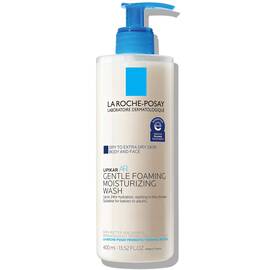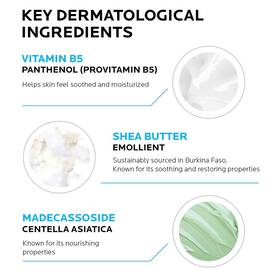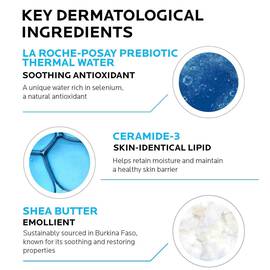WHAT IS THE DIFFERENCE BETWEEN PSORIASIS VS. ECZEMA

SUMMARY: Both psoriasis and eczema have similar symptoms, yet they are distinct conditions. Board-Certified Dermatologist, Dr. Rina Allawh, explains the primary differences between psoriasis vs. eczema.
WHAT IS THE DIFFERENCE BETWEEN PSORIASIS VS. ECZEMA
Who's affected?
- Eczema: Babies, young children and adults. 40-80% of cases resolve by age 5 but can continue into adolescence and adulthood. .
- Psoriasis: Usually starts between 15 and 35. More rare in babies and small children than eczema.
What you feel
- Eczema: Itching
- Psoriasis: Milder itching, with stinging or burning
What the lesions look like
- Eczema: Red patches with scaling, oozing or crusting. There may be visible scratch marks and bleeding.
- Psoriasis: Raised red patches with a silver scaling surface. The skin is thicker and more inflamed than in eczema
Where you get the lesions
- Eczema:In babies: Any part of the body can be affected but it is particularly common on the face and scalp. In older children and adults: It tends to affect the skin folds (the neck, the inside of the elbows, the back of the knees, etc.)
- Psoriasis: Elbows, knees, scalp and face, lower back, palms of the hands and soles of the feet. Psoriasis can also cause pitting and splitting of the nails which does not occur in eczema.
Triggers
- Eczema:Anything that dries the skin like harsh soaps can trigger eczema. It is also triggered by irritants such as washing detergents, as well as allergens such as house dust mite and certain foods. Finally, eczema can flare up due to stress, hot and stuffy environments, or leaving sweat on skin after sport.
- Psoriasis: Like eczema, psoriasis can be triggered by stress. It can also be brought on by throat infections or injury to the skin (scratches, cuts, tattoos…). Certain medications can bring on psoriasis flare-ups such as beta-blockers, NSAIDs (ibuprofen), lithium or anti-malarial drugs
Treatments
- Eczema:Eczema flare-ups are usually treated with topical corticosteroid creams, followed by emollients for maintenance.
- Psoriasis: Mild and fairly localised cases of psoriasis can be controlled with topical corticosteroids and emollients. More severe cases are treated with oral immune suppressant medications.
Click HERE for an in-depth look at eczema from causes to solutions.
If you are experiencing symptoms of eczema or psoriasis, please consult your doctor for a diagnosis.
Referecnes:
https://www.aad.org/public/diseases/eczema/childhood/child-have/difference-psoriasis
https://www.ncbi.nlm.nih.gov/pmc/articles/PMC4565838/#CIT0012
https://www.ncbi.nlm.nih.gov/pmc/articles/PMC2921739/
https://www.aad.org/public/diseases/eczema/childhood/child-have/difference-psoriasis
https://www.ncbi.nlm.nih.gov/pmc/articles/PMC4565838/#CIT0012
https://www.ncbi.nlm.nih.gov/pmc/articles/PMC2921739/





